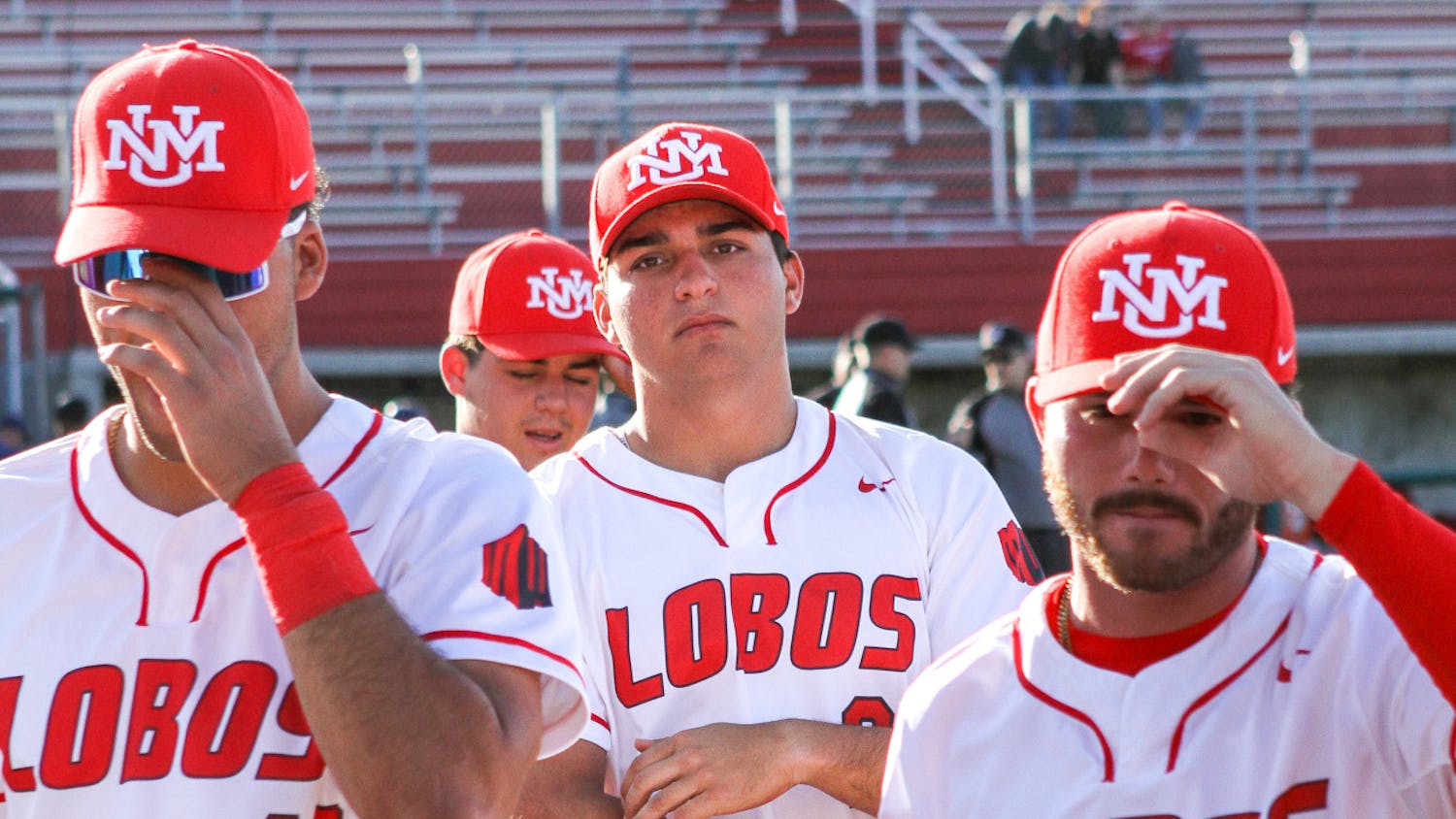“We need to keep the water on the watershed rather than letting it run off. That’s my mantra — keep the water on the watershed,” UNM professor William Fleming said.
Fleming opened his watershed management class up to the public on Wednesday as part of Community and Regional Planning’s Teach Week, clarifying that the week of lectures and talks are a reaction to the current political drama in Washington.
“We’re looking at a new administration that wants to reduce environmental regulations to an absolute minimum, and I think that’s a dangerous way to go,” he said.
The event featured guest speaker Aaron Kauffman, founder of Southwest Urban Hydrology — a 5-year-old business that works on urban water conservation projects.
“My stance is that there are not enough people addressing urban watershed issues,” Kauffman said. “It’s where most of us live and people are always excited about a workshop that’s off in a beautiful part of the state, but honestly we need to be doing more in the immediate space that we live.”
The lecture focused on Kauffman’s study of rain gardens at Santa Fe Community College.
He outlined the difference between drought — when an area receives below average rainfall — and desertification, which is when land is dried out by poor water management despite normal precipitation.
Kauffman said desertification frequently happens when rain falls on impervious surfaces in urban areas, where 80 percent of the U.S. population lives, and can’t saturate the soil to reach the aquifers. Instead of storm water soaking into the ground, it runs off into the Rio Grande, carrying with it pollutants like fecal matter and heavy metal.
One solution to this problem is rain gardens: small gardens with native plants that break down pollutants and are watered entirely by runoff from parking lots and streets.
In his study at Santa Fe Community College, Kauffman was able to keep two rain gardens alive by passively irrigating them with water running off of a parking lot and saw an average increase in soil moisture of 17 percent.
Unlike his control group, the rain gardens held the maximum amount of water for that soil type and, he said, with that soil moisture a tree could be survive for up to a month of drought.
Soon Kauffman will be working to create demonstration rain gardens around Santa Fe, thanks to a grant from the Environmental Protection Agency. However, that grant money may not come through due to Santa Fe’s status as a sanctuary city and how Trump administration reacts, he said.
Get content from The Daily Lobo delivered to your inbox
City codes require permits for cutting curbs to irrigate rain gardens, however, there are still many ways for average citizens to conserve rainwater, Kauffman said.
“Storm water starts with just individual homes,” he said. “No one wants a home with a leaky roof, but you’re displacing that storm water somewhere. And in this region it’s still a resource so it’s a question of, how do I put this to better use? The simple, cheapest way is just to direct it to a tree and use it to saturate a plant.”
Kauffman also touched on water conservation techniques in rural parts of the state, like building small stone or wood structures that slow running water down and help regrow vegetation to prevent erosion.
He said those techniques are designed so that anyone can apply them using the resources they already have on their land.
“There’s all sorts of studies that say children having more green space around their school encourages better learning,” Kauffman said. “There’s all sorts of reasons we should be growing trees, but it comes at a cost of water, so I’m just trying to identify where are we losing that water on the urban landscape and how can we use it.”
Cathy Cook is a news reporter at the Daily Lobo. She can be reached at news@dailylobo.com or on Twitter @Cathy_Daily.





